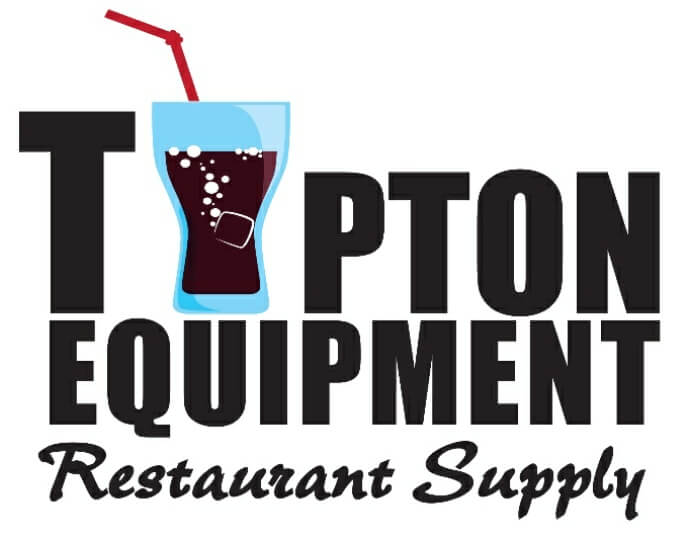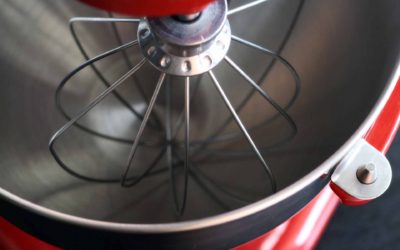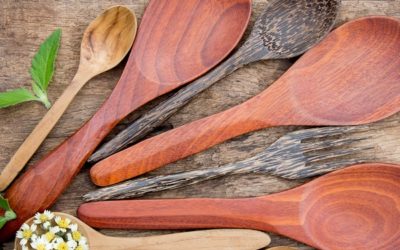Restaurant Supplies: Getting Started With a Food Truck
October 10, 2018While restaurants grow slowly, the food truck industry has been rocketing with 7.3% growth between 2012 – 2017.
Meet the Rules and Regulations
Before you go out and purchase a truck and set a menu, make sure you’re aware of the laws and regulations that govern food trucks in your area. There may be rules about restaurant supplies you must have, how close you’re allowed to be to other restaurants, and how often you have to move your truck. Find out if you can prepare fresh food on the truck or if you have to use a different commercial kitchen. If running a food truck in your area still makes sense, fill out all of the paperwork you need to get your permits and licenses.
Create Your Menu
It’s time for the fun part! What kind of food do you want to create? Make sure you take into account the supplies and ingredients you can get affordably, and whether they are available year-round. You may choose to have certain parts of your menu rotate seasonally. You should make sure that your food is simple and easy to prepare so that you can serve a large number of customers every day. Getting something from a food truck is supposed to be quick, so don’t leave your customers waiting! You’ll want to make sure you have the restaurant supplies you need to keep your cooking operation moving smoothly, from cooking equipment to napkins, plates, and plasticware. Consider what other food trucks operate in your area and if your niche has room for one more. No matter what you serve, you’ll want to think about how to stand out from other similar trucks.
Handle Your Financials
Starting any business in an investment, so make sure that you know what equipment and restaurant supplies you can afford. A used food truck can be as low as $20,000 while building a new one can cost over $100,000. From there, determine how to outfit your truck. Get the fryers, flat top grill, and whatever specialty equipment you think you’ll need. You can buy high-quality used equipment to get started! Your next step is marketing. Social media is a great way to market, but it works best once you have a following. Think about whether you need printed flyers, media interviews, or other tactics to get your truck off the ground. You’ll also need insurance to protect your investment from accidents, theft, or other crimes. Unfortunately, a food truck can be a sitting duck for those with bad intentions. Finally, set a monthly budget to stick to for your business. Set money aside for repairs and build a buffer for unexpected slow times. You may even decide to operate only part of the year and find other income during the offseason.
Get the Restaurant Supplies You Need Today!
A new venture is exciting, but it’s important to carefully plan for the success of your new business. As you look to start your Little Rock food truck, you need a supplier you can trust for restaurant supplies and equipment. We’ve proudly served local businesses for many years, and we’re excited to help you begin your new venture. Contact us for quotes on equipment today!
5 Essential Buying Tips for Your Next Food Prep Work Table
The right foodservice equipment is pivotal to the efficiency of your kitchen. One of the most important types of foodservice equipment for any kitchen is the work table. With limited room on countertops available for your food prep needs, the cooking process can drag...
Tips for Keeping Your Commercial Sink Sparkling Clean
Your commercial kitchen, just like your personal kitchen, must be kept clean at all times. With all of the cooking and food processing you do, it is inevitable that your sink gets messy. Cleaning up your commercial kitchen is incomplete without proper cleaning of your...
Food-Cutting Secrets to Beautiful Dishes
In the restaurant industry, presentation is often said to be just as important as the food itself. Using the right knowledge, skills and restaurant supplies, you can incorporate creativity into your presentation, making guests feel that they are getting something...
Top Space-Saving Tips for Commercial Kitchens
Top Space-Saving Tips for Commercial Kitchens Space is always an important consideration when setting up a kitchen, and this is even truer for commercial kitchens. With a strong focus on functionality and the kitchen supplies that meet the needs of your commercial...
5 Ways to Get the Most Out of Your Mixer
No one wants to eat off of dirty or tarnished silverware. A stand mixer is a highly useful piece of kitchen equipment to invest in. Although this type of kitchen equipment does not usually come cheap, it can last a lifetime when properly cared for. Despite all your...
Restaurant Prep Tool Selection Simplified
What’s a restaurant kitchen without high-quality prep tools that can withstand the pressure of frequent use? Whether you already have a restaurant you’re running, or you’re just planning to launch one, one vital factor that could make or mar your business is how you...
Beginner’s Guide to Choosing a Commercial Ice Cream Freezer
Ice cream is a delicious and appealing desert treat for everyone, young or old. Having made the decision to sell ice cream to your customers, whether you have a restaurant, convenience store, or specialty ice cream parlor, it is time to begin stocking up on the right...
How to Choose the Right Kitchen Scales for Your Restaurant
A food scale is an essential item in every restaurant’s store of kitchen supplies. Designed to take the guesswork out of food measurement and maintain consistent food serving sizes, food scales are indispensable kitchen supplies in the commercial kitchen. With such a...
Beer Chilling Systems: Which Type Is Right for My Restaurant?
A refrigeration unit is integral to the functioning of any restaurant. Beers are best served cold - there’s no questioning that! But which beer chilling system is the best? From reach-in coolers to glycol chillers, a beer chilling system is an important piece of...
What Equipment Will I Need to run a Food Truck?
There’s a lot of planning that goes into starting your own food truck business. Before you hit the road with your delicious food offerings, you’ll need to fill up your truck with all the right foodservice equipment. Considering the lengthy list of possible items to be...
8 Types of Food Thermometers: What You Need To Know
Food thermometers are essential restaurant supplies for your commercial kitchen. They ensure that foods prepared in your commercial kitchen are cooked to the right temperature and held at that temperature for as long as necessary to kill any harmful bacteria. This...
How to Identify the Best Food Processor for Your Needs
Highly versatile and extremely efficient, food processors are designed to take away the hard work from repetitive kitchen activities. This type of cooking equipment can quickly become an invaluable tool in your kitchen. From chopping, to shredding, grinding, mincing,...
6 Keys to Choosing the Best Chafing Dishes for Your Restaurant
The chafing dish, also known as the chafer, is an essential piece of restaurant equipment for any establishment that wants to keep food hot. This type of restaurant equipment gets its name from the French word, chauffer, which means to heat, and it’s easy to see why....
Turning up the Dial on Commercial Fryers: How to Choose One for Your Restaurant
Fried food is a well-loved favorite. This is a fact. It also makes a fryer an important piece of equipment to have in your commercial kitchen. Just consider how many appetizers and sides require frying: onion rings, French fries, and fried green tomatoes are just a...
What’s in a Cooking Pot, How to Choose the Right One?
As a restaurant owner, your cooking needs might vary. Did you know that a good quality pot can greatly improve your cooking experience, while also improving the quality of your cooking? This cooking equipment is a very important one that cannot be done away with...















